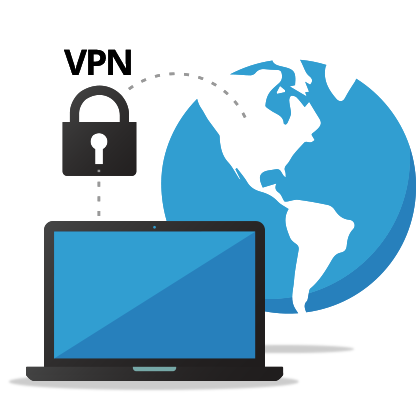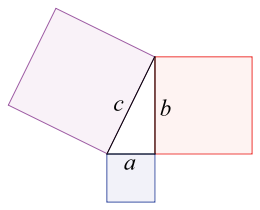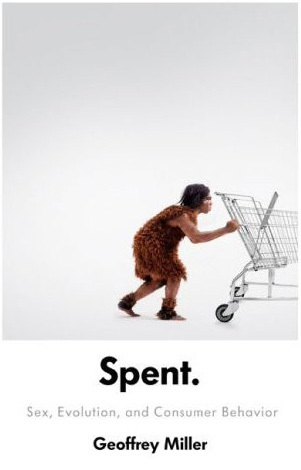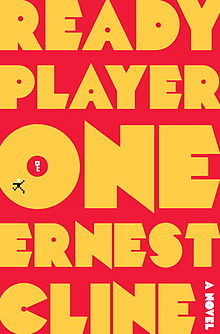Daniel Miessler's Blog, page 126
April 9, 2017
A Few Thoughts on Creativity and Age

I just read this NYT article about a brilliant physicist who happens to be 94-years-old.
The article basically said that it could be that people get more creative when they get older, which, as they explain, is in contrast to youth-worship that pervades Silicon Valley.
I have some ideas about this.
First, I think most of cognitive decline from age comes from traditional lifestyles. The classic life that most people lead, in my opinion, literally produces oldness of the mind. It works like this:
In your 20’s, work on really interesting ideas and focus on your work.
In your 30’s, get married and have kids.
Change everything in your life around your family, i.e., make your work secondary, or tertiary, to your own projects and interests. Work becomes a means to take care of your family, not a passion.
Now turn 40, and then 50, while living this life. You’re watching tiny little kids run circles around you, you’re being asked remedial questions all day every day, and you’re living in fear of not providing well enough for your precious children and family.
That’s how you get old.
I’ve no doubt the mind changes as you age, but I’m not at all convinced that it deteriorates faster than it gets better—especially if you’re constantly acquiring and refactoring new knowledge.
Anecdotally, my own intelligence and ability to do things is accelerating in my 40s, not slowing down. That’s not evidence, of course, but I do have the opposite situation to the one above.
I am free to focus on my work and passions.
I have a job that encourages me to excel and improve.
I live surrounded by fascination, wonder, and possibility—not fear.
I think this combination of lifestyle factors makes it so that I can get smarter rather than dumber over time.
Old people stop creating because they stop thinking. They resign. They check a box that says they’re fathers, mothers, grandparents, whatever. And once they do that, they decide internally not to be creators anymore.
And for many people that starts around a year after they have kids. They decide that their identity is parent now, and it’s on someone else to make cool things.
Kids are wonderful. If you are born to be a parent, then go do it. We need more of you who are into it as a full commitment.
But people shouldn’t associate age with a lack of creativity. It’s not the age, it’s the lifestyle that comes with it if you sign up for the default option of parenting, grand-parenting, and being a provider instead of a creator.
Keep yourself in creator configuration and you’ll likely continue to improve well into your 70s, 80s, or 90’s. And if you’re only in your 30s to 50’s as you read this, that cap could be removed indefinitely due to advances in science.
Decide what you want your life to look like. Don’t let it happen to you.
Notes
I definitely don’t want to convey that it’s impossible to be creative as a parent. There are many parents who go on being create creators and influencers after they have kids, but what they do is manufacture a life where that is possible. They have help with kids in some way. They make it clear that there is their time vs. family time, etc. They make it happen, where most parents don’t.
__
I do a weekly show called Unsupervised Learning, where I curate the most interesting stories in infosec, technology, and humans, and talk about why they matter. You can subscribe here.
Adjacent Possibles

I had a great conversation with friend and colleague Josh Corman this weekend about various information security topics.
Josh is one of those people who produces multiple packets of interesting speech and thought during the course of a conversation. He creates these bundles, collects them, and can employ them whenever needed.
It’s quite remarkable.
Anyway, one he had for me this weekend was the concept of an Adjacent Possible, which he explained to be kind of the opposite of a distant ideal. It’s largely different for different people and different organizations, but represents the next, realistic thing you can do to move towards your goal.
A glance at Google reveals a completely different definition, so I’m not sure the sources of these various concepts, but I thought the idea was interesting enough to pass along.
When thinking about big ideas—especially where there are many groups in play that you hope to influence—don’t just think about the 12 steps that every group will have to take.
Think instead about action that each organization can take to improve their position by moving closer to the ideal, and recognize that it might vary widely from group to group.
Think about their Adjacent Possibles.
__
I do a weekly show called Unsupervised Learning, where I curate the most interesting stories in infosec, technology, and humans, and talk about why they matter. You can subscribe here.
April 8, 2017
Bookstores vs. Check Cashing Places

I think the two most opposite geographic markers, in terms of income and class dynamics in the United States, might be bookstores and check cashing establishments.
I was just driving in Fremont, CA and realized that there are no bookstores there.

Same with Newark, Milpitas, Union City, etc. They have no bookstores, no Philz, no Apple Stores—none of it.
But there are plenty of Check Cashing places.

Check Cashing places are horrible, predatory establishments—often owned by big name banks, by the way—that feed off the misfortune of poor working people. And bookstores are for people who read for fun, a.k.a., “the rich” in today’s messed up world.
If I were a parent I’d be looking closely at this ratio when deciding on places to raise children.
I’m sure there are other proxies for the quality of a city that are good to track as well, such as school rankings, crime rates, etc. But I’d bet they correlate strongly with bookstores and check cashers.
The next time you’re in a new town, ask yourself what that ratio is. It might tell you a lot about the place.
__
I do a weekly show called Unsupervised Learning, where I curate the most interesting stories in infosec, technology, and humans, and talk about why they matter. You can subscribe here.
The Power of Reading

I’ve only just now—within the last five years—realized how powerful reading is. I think I went through the following evolution.
Thinking it was an intellectual nice-to-have (my whole life).
Thinking it was a genuine enhancement to one’s cognitive abilities (up to 10 years ago).
Realizing it’s the hidden secret of most creative people in the world (5 years ago).
I don’t know anyone who is generally smart about the world who does not read voraciously, and others are starting to point this out as well.
I’m prone to hyperbole when excited, so I’m trying to control myself, but I’m starting to see this as a binary thing—almost like cybernetic enhancement.
When I’m talking to someone, and I assess how interested they are in the world, I can usually correlate that to how much they read. People who read a lot tend to be fascinated with things, and that fascination exposes them to patterns in different topics that in turn make them even more interested in everything.
What I’m finding is that when two avid readers are in the same room, the conversations become outbursts of passionate astonishment at the wonder in the universe.
OMG, I loved that book! Did you read X? OMG, you have to read X. I’m definitely going to read Y now that I’ve talked to you!
Similarly, conversations about one concept often remind one or both participants of an orthogonal topic, which bursts onto their brains and faces like an orgasmic lightbulb.
YES! That reminds me of this other concept, which I heard about from Z; did you read that book? She says that when you have both this and this, you’ll often get that, which is exactly like what you were just talking about…
Etc.
I’m starting to see it as true enhancement, like a bionic augmentation that just makes you superior. It’s like, if you have read 100 great books and thought about their ideas, you are superhuman compared to people who have not.
And if you were a superhuman who had that knowledge stripped from you, you would be nothing less than retarded, in the strictest sense of the word. Restricted. Limited. Incapable of growth beyond a certain point.
Wisdom multiplication
I wrote somewhere else that the reason could simply be multiplication of experience. Imagine that one lifetime with a decent education gives you x amount of wisdom, which is vast. And let’s say that because of variation in genetics, upbringing, and luck, there is a variation in total wisdom of a base person of 20/100. So, people can either be 80 wise, or 100 wise.
But that’s before you add reading.
If you read, what you do is incorporate the wisdom of thousands of others. You live other lives. You see other worlds. You experience other perspectives. You travel in the lives of the great people of history. You feel their pain, you rejoice with them.
You learn from their mistakes.
So what you end up with is a completely different scale. Instead of being retarded at 80-100—due to a single-life experience—your scale moves to something like 200-500. I’m making up the numbers obviously, but I truly believe the magnification is that extreme.
Most every great writer is/was also a great reader, many of the most successful people in the world credit their success to reading, and I’ve never had a boring conversation with someone who’s read more than 5 books in the last year.
I strongly feel that my functional intelligence has been vastly magnified by significant amounts of high quality reading throughout my life, starting when I was very young, but accelerating massively in recent years. I don’t think I’d be nearly as interested in things if it wasn’t for reading, and in fact when I slow down for even a couple of months I notice a difference.
If you want to improve your life, I could not recommend anything stronger. And if you’re a parent, consider using every manipulation in your power to encourage your kids to see reading as their primary method of enjoyment and enrichment.
I truly believe it will do more to ensure / magnify their success than almost anything else.
Notes
I am aware that there are lots of different types of reading. I’m referring to reading lots of different types of books, but definitely including top-rated titles like you might find on a New York Times or Amazon best-sellers list. Whatever you add to that I don’t think matters much, but if you’re not that quality of content then I’m sure you’re getting some benefit but not the same as if you were.
__
I do a weekly show called Unsupervised Learning, where I curate the most interesting stories in infosec, technology, and humans, and talk about why they matter. You can subscribe here.
AR Glasses + Language Translation / Subtitles

There are credible rumors that Apple is working on AR glasses. Of course that’s not to say that they’ll decide they’re good enough to launch.
If and when they do appear, though, I think one of the first attention-grabbing features will be realtime language translation. So, the combination of quality direction microphones, voice recognition, and natural language processing.
I believe this will become a primary feature early on for the following reasons:
Eliminating the barrier to instant communication between people from different places and cultures would provide a massive advantage to humanity as a whole.
Many of the required technologies are reaching maturity right now.
It would create a significant market opportunity in big cities, where people would love to know what people around them are saying in languages they don’t understand.
The products—from any vendor, not just Apple—could leverage multiple technologies to accomplish this overall goal.
High quality microphones that target speakers and use voice recognition and natural language processing to extract one conversation from within many.
Machine learning to assist with every part of that.
Speaking a translated version into your ear while blocking out their original speech.
Printing a text version on the screen to augment or replace the audio translation.
Now imagine multiple conversations being captured and displayed in this way, oriented in the display according to where the voices are coming from. Perhaps with avatars for each.
This is the type of thing that will make AR so compelling once it lands successfully—practical applications that improve the user’s chances of success in the world.
As I wrote about in The Real Internet of Things:
One of the most fundamental human desires is to become more knowledgeable and more powerful, as these things are tied to survival. Our DAs will use all resources available to them to provide us with the most and the best possible ways of interfacing with anything we are dealing with. This type of functionality will very quickly spawn vibrant marketplaces because they appeal so directly to human instinct.
Miessler, Daniel (2017-01-01). The Real Internet of Things (Kindle Locations 368-371). Kindle Edition.
Realtime language translation will be a milestone achievement in precisely this way, and I think we should expect to see it as one of the early feature sets in personal AR interfaces.
__
I do a weekly show called Unsupervised Learning, where I curate the most interesting stories in infosec, technology, and humans, and talk about why they matter. You can subscribe here.
April 7, 2017
Moving to a Sponsorship Model

I’ve been quite reluctant to run ads on this website, for a number of reasons.
They feel dirty to me, whatever that means.
They literally junk up the aesthetics of the site, although the single ad in the sidebar wasn’t bad.
I just prefer to be someone who doesn’t participate in the ad modal.
For those reasons, I’m attempting to move to a different modal, which is sponsorships.
Sponsorships are different from ads in that I don’t get a check based on clicks or impressions, but rather I make an agreement with specific vendors to display their product in my designated sponsor spot (at the top of each post), and in return they give me X dollars over the period in question.
Importantly, this model is just a text link—so, no JavaScript and no image.
It’s cleaner design-wise, cleaner technically, I don’t get surprised by what products are showing my site because I’m hand-picking the companies I partner with.
So that’s the new model for not losing money from hosting infrastructure, etc., and maybe even having some left over. If you have any comments on how the modal strikes you, do let me know.
__
I do a weekly show called Unsupervised Learning, where I curate the most interesting stories in infosec, technology, and humans, and talk about why they matter. You can subscribe here.
Some Thoughts on Dataism

The final chapters of Homo Deus talks about the concept of Dataism. A cursory glance online doesn’t give too many previous reverences to the term, so I’m not sure if Yuval Noah Harari created the term himself, if he’s giving a different definition for a term already in use, or exactly what that situation is.
But let’s use his definition.
Dataism declares that the universe consists of data flows, and the value of any phenomenon or entity is determined by its contribution to data processing.
~ Harari, Yuval Noah (2017-02-21). Homo Deus: A Brief History of Tomorrow (p. 367). HarperCollins. Kindle Edition.
He describes a few core concepts in the same book, which I’ll capture and talk about here.
Dataism is an alternative to liberalism in that it does not place the human and their feelings and decisions at the center of the universe. Instead, it’s all about information flow.
The human species can be seen as a single data processing system, and the people are the chips in this computer metaphor.
Competing religions and political systems are simply competing information processing systems, on this view.
We improve the human system by: increasing the number of processors, increasing the variety of processors, increasing the connections between processors, or increasing the transfer of information between connections and processors.
The human processing system went through four main phases: the Cognitive Revolution, which put us all into a single data-processing network. The Agricultural Revolution, which continued until the invention of writing and money. The Writing & Money revolution. And the Scientific Revolution, which began around 1492.
He believes the ultimate output of this data processing is the creation of an Internet-of-All-Things, which will ultimately make Homo sapiens obsolete.
A primary commandment of Dataism is to maximize the flow of information by connecting to more of everything in order to create and consume more content. It also wants to link everything to itself, which is the bridge into the Internet of Things.
People subscribing to this are more likely to be young, and will be happy to give up their data to make this happen.
Proponents of this ideology believe that the system itself can know you better than you can know yourself, as it can with everyone. And ultimately we’ll rely on it more and more to make every decision, because it’ll do a better job.
The nature of AI algorithms makes it so that we won’t know how or what the system is doing, or how it’s so damn good at predicting and choosing things. It’ll become a black box, and it actually already is in many cases.
Humanism is all about experiences within us. Dataists say that anything that’s not shared is wasted, and that we cannot find meaning within us. Supposedly the solution is to send our experiences into the system and have it tell us what we should do next.
My analysis
First of all, I’m fascinated by this characterization. I’ve been reading, thinking, and writing about the topic for years now, but I’ve never seen the ideas crystalized in such a concise and powerful form before. My book didn’t focus on the personal responsibility aspects of the equation—just the technologies and how we will use them.
So I’m quite impressed, but I have some comments.
First of all, I don’t think the worlds of Humanism and Dataism will have strong borders between them in practical realty. At least not for the decades during transitions.
What we end up with is just people, and those people have some combination of many philosophies working simultaneously. As I say often, people are actually multiple people. So they’re likely to be both fiercely intent on their own experiences and willing to share them and get recommendations from an all-knowing AI—all within the same afternoon.
I also feel like the description of a data-focused world should have some mention of mechanisms for self-improvement. He mentions the number of nodes, and the connections between them, but I think we need some combination of ML and EA as well. I wrote about it in my chapter titled Getting Better at Getting Better.
It’s difficult to overstate the benefits that can come from being able to accelerate not just our ability to learn, but our ability to learn how to learn. That’s precisely what the combination of machine learning and evolutionary algorithms can do—both on their own and when used together to enhance each other.
~ Miessler, Daniel (2017-01-01). The Real Internet of Things (Kindle Locations 489-491). Kindle Edition.
I also found the concept of the Internet of All Things to be quite fascinating, for obvious reasons. He seems to be talking about what I believe to be the end-state for humans, and ultimately the transition into another form. Which he also talks about.
I think it’s also how we become immortal, since at that point we’d really just be digital brains. Ultimately even the concept of identity will seem strange, since our experiences will be so shared, and at such a fundamental level. Plus it will be trivial to copy and destroy versions of ourselves.
Anyway, it was great fun to read his Dataism characterization, and I look forward to explore it more in the future.
Notes
As I have said multiple places already, you absolutely need to read Homo Deus. It’s absolutely spectacular.
This is the first time I’ve ever quoted myself in a bibliography sense. It was actually just a copy and paste from the Kindle app, which brings all that content with it by default (to protect authors). Either way, seeing my name combined with my book in this way produced a legitimate sensation of accomplishment.
__
I do a weekly show called Unsupervised Learning, where I curate the most interesting stories in infosec, technology, and humans, and talk about why they matter. You can subscribe here.
April 6, 2017
VPN Recommendations

VPNs are becoming a major topic of conversation due to the recent removal of ISP privacy protections. There are hundreds of VPN providers out there already, and more are materializing every day—some for good reasons, and some for bad.
Given that reality, I thought it would be a good idea to assemble a short list of VPN options for readers that has the following characteristic: selecting any provider on this list might not be perfect or “the best”, but will likely be acceptable.
I created this list by doing a few hours of research, which includes parsing complex lists like this one, as well as other meta-lists online.
[ NOTE: Considerations include things like: whether or not they log, whether or not they protect activists, known issues around business ethics, technical security, popularity among security professionals, etc. ]
In short, you are unlikely to go wrong with any of these.
Mullvad: OpenVPN-based, out of Sweden.
Zipline: This is an IPSEC, hardware-based VPN run by a buddy of mine, Dan Tentler.
IVPN: OpenVPN-based, lots of configuration options, including multi-hop.
AzireVPN: Another solid OpenVPN-based solution, also with significant configuration options.
OVPN.se: Yet another solid and highly-rated OpenVPN-based solution.
TL;DR
My current, personal recommendation would be to use Mullvad or IVPN if you want an OpenVPN/TLS option, and Zipline if you want an IPSEC solution.
UPDATED: APRIL 2017
Notes
If you have a recommendation on how to improve this list, definitely reach out and let me know.
I put the updated date here because these recommendations can expire, meaning a company that’s good one day could become bad the next. So it’s important to keep that in mind when selecting a provider where trust is such a key component.
__
I do a weekly show called Unsupervised Learning, where I curate the most interesting stories in infosec, technology, and humans, and talk about why they matter. You can subscribe here.
The Unsupervised Learning Book List

I’ve been reading more than ever over the last five years, and I get a lot of questions about what I recommend. So here’s my official book list.
I’ll give one sentence about what each is about, but I won’t try to sell it to you. The sell is simply that I’ve read a couple hundred books over the last several years, and these are my ordered recommendations.
Nonfiction
Spent: Sex, Evolution, and Consumer Behavior — My favorite book on the merging of Evolutionary Psychology with marketing and personality.
The Red Queen: Sex and the Evolution of Human Nature — This book taught me more science about human evolution and human nature than any other.
Homo Deus: A Brief History of Tomorrow — An unmatched look at the history, present, and future of humanity.
The Real Internet of Things — My book on the future of the Internet of Things and how it’ll merge with society.
Naked Economics — This book completely changed what I understood economics to be, and I’m now fascinated with it as a result.
The Subtle Art of Not Giving a F*ck — A short, spectacular work on the most important lesson of all: worry less about what others think of you.
Models: Attract Women Through Honesty — I was surprised by how good this book is—both in how it’s written and in the way it stresses honesty and a lack of manipulation as its central tenets. Think of it less as a dating book, and more as as a book on becoming comfortable with yourself.
The Dictator’s Handbook: Why Bad Behavior is Almost Always Good Politics — A stunning education into real-world politics that you can’t unlearn once you are exposed to it.
Hamilton — A remarkable biography that taught me more about America than I’d learned any other way.
Fiction
Ready Player One : An unspeakably fun journey for anyone who lived through—or is a fan of—the eighties geek scene.
The Metamorphosis of Prime Intellect: A Novel of the Singularity : My long-time favorite story around the singularity and its fantasy-injected possibilities.
Lexicon : A brilliant blend of hacking, psychology, and fantasy.
Kill Decision : A novel-based exploration of numerous non-fiction concepts, with miniature drones being the centerpiece.
The Graveyard Book : Supposedly a children’s book, but enough fun for 10 adults put together.
UPDATED: APRIL 2017
Notes
If you don’t like my fiction selections because they’re not as refined as my nonfiction selections, I preemptively agree with you. Let me know what I should read to improve the list.
It’s harder than you think to put books in order like this, especially as you start going down in the list. If it helps, consider it a recommendation of what order to read them in, not a hard statement of ultimate objective quality.
Please send any recommendations. I’d love to improve the list!
__
I do a weekly show called Unsupervised Learning, where I curate the most interesting stories in infosec, technology, and humans, and talk about why they matter. You can subscribe here.
Pythagoras’s Theory on How Parents Make Children

I’m currently reading The Gene: An Intimate History, a stellar book on the history of genetics.
One of the anecdotes in the book, which I really enjoyed, was that Pythagoras—who we know best from the Pythagorean Theorem—also had a theory about birth and heredity.
As you’ll recall, the Pythagorean Theorem states that:
a2 + b2 = c2
…and as often happens with thinkers, he took this idea to heredity as well, arguing that the relationship of children to parents is like the relationship of the a and b sides to the c side, i.e., fundamentally linked.
As you can see from the Wikipedia article, there is some question about how much of what’s attributed to Pythagoras actually came from him, but the story is cool regardless.
I think it’s interesting when an idea permeates someone’s thinking to such a degree (sorry) that they see the concept in everything.
__
I do a weekly show called Unsupervised Learning, where I curate the most interesting stories in infosec, technology, and humans, and talk about why they matter. You can subscribe here.
Daniel Miessler's Blog
- Daniel Miessler's profile
- 18 followers





